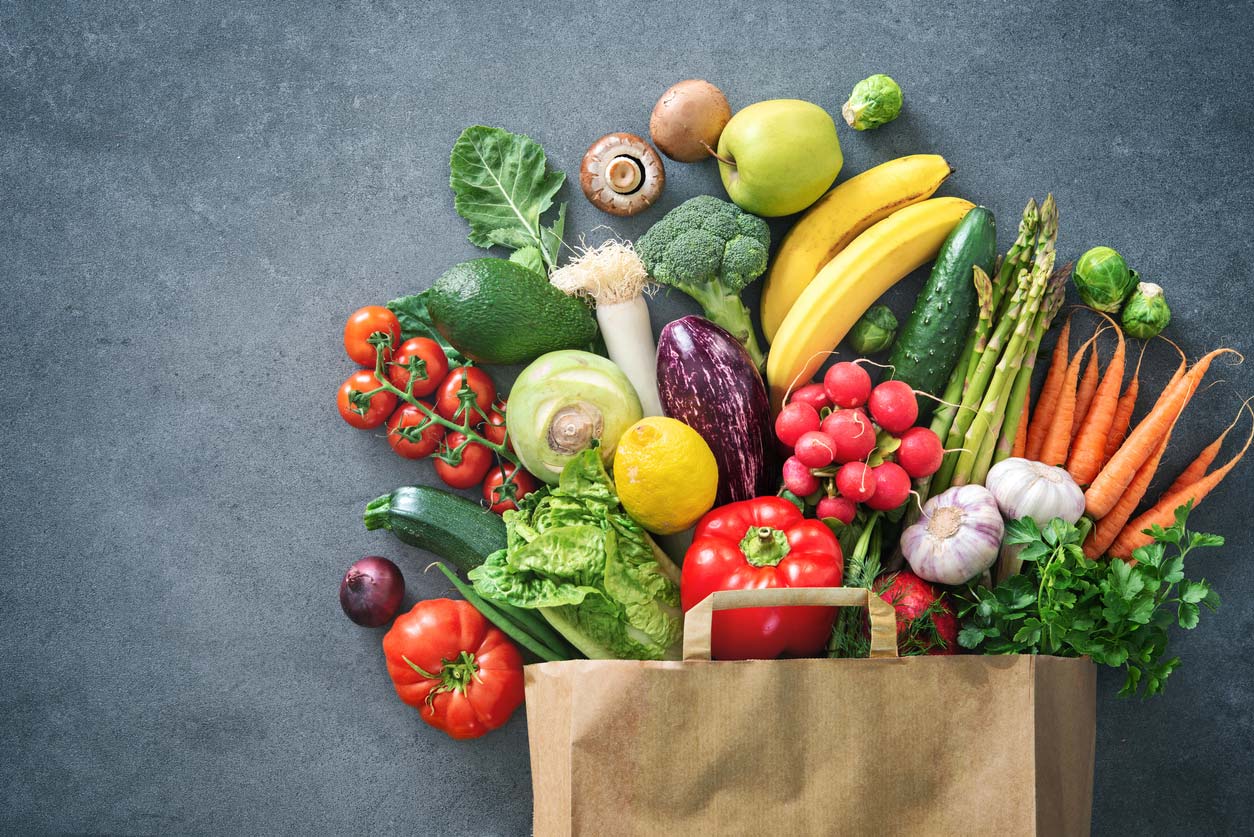
If you want to follow cholesterol guidelines, and are looking to avoid cholesterol in your diet,
you can eat all of the fruit, vegetables, grains, nuts, seeds, beans, peas, and lentils you want.
Not only do these foods not contain cholesterol, but they can also help lower high LDL and total cholesterol levels. They accomplish this feat in large part because plant foods are high in soluble fiber.
Soluble fiber binds to the cholesterol particles in your small intestine, preventing them from traveling to your bloodstream and other parts of your body. Instead, soluble fiber removes cholesterol by way of excretion through your colon.
If you want to lower your cholesterol or help to prevent it from rising in the first place, it’s a good idea to make some of the following foods the foundation of your diet.
1. Legumes
Legumes include beans, peas, and lentils.
A 2014 review of 26 randomized controlled trials, published in CMAJ, found that eating just a ½ cup of legumes per day can lower LDL cholesterol by an average of 6.6 mg/dl, compared to the effects of not eating legumes at all.
2. Dark Chocolate
Cocoa is the main ingredient in dark chocolate. In a 2015 study published in the British Journal of Nutrition, 100 healthy adults aged 35-60 years old drank a cocoa beverage twice daily for one month. After that, their blood cholesterol was measured. Those who drank the cocoa beverage experienced a 6.5 mg/dl decrease in their LDL cholesterol, an increase in HDL cholesterol, and a reduction in blood pressure compared to the placebo group.
This doesn’t mean your favorite dark chocolate candy bar just turned into a health food. Why? Because the added sugar (among other ingredients) in many candy products can negate the health benefit of the cocoa. Instead, find a chocolate bar that has a high percentage of cocoa, ideally around 75-85% or more.
3. Whole Grains
Whole grains are grains that still contain all their nutrients and haven’t gone through the refining process. Some examples of whole grains include whole wheat, barley, oats, quinoa, bulgur, and brown rice.
Whole grains are high in soluble fiber. Barley and oats are especially good sources of a type of soluble fiber called beta-glucan, which has been studied more for its effectiveness in lowering cholesterol.
A 2016 review published in BMJ looked at 45 studies and determined that eating three servings of whole grains daily could lower the risk of stroke and heart disease by up to 20%. What’s more, eating up to seven servings of whole grains per day had an even bigger benefit.
4. Nuts and Seeds
Nuts and seeds are high in monounsaturated fats, which are known to help lower cholesterol levels. Specifically, flaxseeds and chia seeds are rich in omega-3 fatty acids, a type of polyunsaturated fat linked to heart health. And almonds are rich in L-arginine, an amino acid that helps produce nitric oxide in your body and can support healthy blood pressure.
Nuts — especially pistachios, macadamia nuts, cashews, and almonds — are also high in compounds called phytosterols, which resemble cholesterol and actually block its absorption in your intestines. It’s like you’re gumming up the keyhole, so cholesterol can’t open the door into your bloodstream. Very clever, phytosterols!
5. Avocados
In addition to being high in fiber, avocados are rich in monounsaturated fats, which have cholesterol-lowering effects.
A study published in the Journal of the American Heart Association in 2015 found that eating one avocado per day lowered high LDL cholesterol levels among overweight and obese adults, more than those who didn’t eat any.
Furthermore, a 2016 meta-analysis examined 10 studies, finding that replacing other dietary fats with avocados was linked to lower levels of total cholesterol, triglycerides, and LDL cholesterol.
6. Dark Leafy Green Vegetables
Dark leafy greens like kale, spinach, broccoli, and collards, are high in carotenoids such as lutein, which have been linked to a reduced risk for heart disease. Carotenoids act like antioxidants in your arteries, protecting them from plaque buildup. Animal studies also suggest that lutein can lower LDL cholesterol levels.
Some research suggests that dark leafies may also bind to bile acids, causing your body to excrete excess cholesterol. This is especially true when you steam them, even more so than consuming them raw.
7. Berries and Other Fruit
Berries — as well as apples, citrus, and grapes — contain a specific type of soluble fiber called pectin. Pectin has been studied for its cholesterol-lowering effects, potentially reducing high levels by up to 10%.
Berries are, of course, also great sources of antioxidants that promote heart health, making it a great idea to incorporate red, blue, and purple varieties into your diet.
8. Garlic and Onions
Garlic contains a potent plant compound called allicin, which has been shown to have protective effects on heart health.
Research shows that garlic can help lower high blood pressure and potentially promote healthy blood cholesterol levels.
Onion peels are especially high in heart-healthy compounds. (No, the research subjects didn’t eat the peels; they were consumed in extract form.) Some animal studies have indicated that adding onions to a diet could lower the risk of atherosclerosis.
https://foodrevolution.org/blog/what-is-cholesterol-and-how-does-it-impact-your-health/?utm_campaign=frn&utm_medium=email&utm_source=email-automated&utm_content=6090&utm_term=existing-email-list&email=shutaleva%40gmail.com&firstname=Zhanna&lastname=




Комментариев нет:
Отправить комментарий